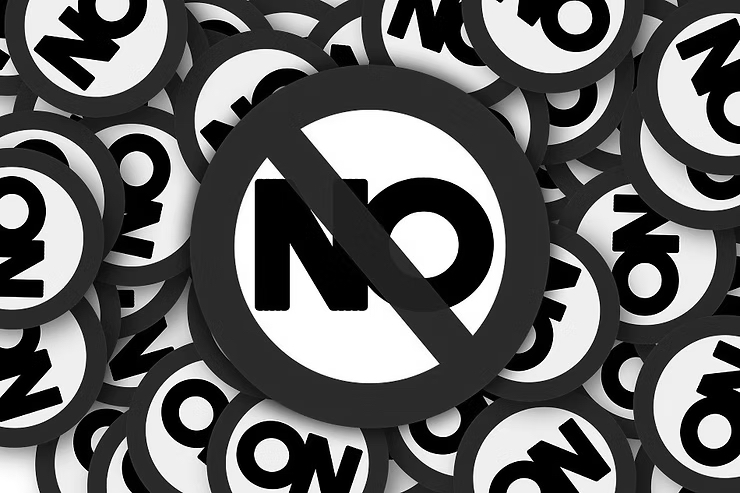In a previous post, we outlined a process for resolving sales objections. It’s a way of adding some stability, scalability, and repeatability to the sales process. In other words, all members of your sales team, from the freshman sales rep to the seasoned saleswoman, now have a way of producing repeatable results when resolving common sales objections.
What’s missing here is the sales rep’s ability to run that process and determine what kind of sales objection they are facing. Now I’m sure every salesperson can determine the kind of objection they are facing based on the content of the objection. For example, if the objection deals with the product, service, the relationship, or the reputation of the sales rep.
See Common Sales Objections From the Prospect’s Perspective
But let’s step back and see the situation from the customer or prospect’s position. Are they bringing up the objection because they have a real problem to resolve, or are they trying to get rid of the sales rep? Are they bringing up issues because they are misinformed? Or do they have an underlying bias for a competing product?
Using the process outlined in the previous post, your sales reps will have an opportunity to determine the type of common sales objections they are facing allowing them to respond accordingly.
Give your sales team an unfair advantage. Download the free manual, Seven Steps to Resolving Objections here.
Throughout my career in sales, I have heard many sales objections. And in my time as a sales trainer and in training trainers, I understand the need for salespeople to simplify and streamline the process as much as possible. Fortunately, I’ve come to notice that sales objections, from the customer’s perspective, fall into 6 categories. The are:
- Genuine
- Stalls and Put-Offs
- Misconceptions
- Biases, Prejudices, and Skepticism
- Unsolvable
- Trivial
So your salespeople don’t need to remember the big book of 100 common sales objections. They only need to isolate and address the 6 types detailed below.
6 Types of Common Sales Objections
1. Genuine Sales Objections
The first type of common sales objection is the genuine one. A real sales objection is a legitimate concern that your prospect has and you need to address the problem before you can move the sales process forward. This can be anything from “Your service costs $500K and we only have $400K allocated in our budget” to “Your system requires a raised floor that supports 500 pounds per square foot and ours isn’t rated that high”. A genuine objection indicates interest in your product and is your opportunity to shine. Solve the problem and you will close the business.
2. Stalls and Put-Offs
A prospect or client will use this type of sales objection if they feel events are moving too fast for them and they need to use a delaying tactic. They need to slow down and get control of the sales process. Prospects who don’t have the authority to buy and are looking for a way to save face will also use this kind of objection and stall for time while they run the options by their management. Lastly, if you’re facing put-offs early in the sales process, your prospect considers you an annoyance and they don’t want to talk. Any way you look at it, they’re purposely stretching out the process to run down the clock.
3. Misconceptions
With this type of objection, your prospect is hesitant to move forward because of something they heard or saw. This type of objection has more emotion in it than fact. It can be the result of your competition running a campaign of fear, uncertainty, and doubt (FUD) against your product or company. Or it can be something as honest as the prospect having outdated information. In these instances, your client or prospect is going to need educating. Use the process to get them to define, defend, and explain their objection and then correct the misinformation.
4. Biases, Prejudices, and Skepticism
In this sales objection, your prospect doesn’t think you or your solution will solve their problem. This means you missed something during your investigative analysis and their trust is with someone or something else. Go back and ask more questions to adequately diagnose the challenges they are facing. In doing so, you’ll improve your integrity and trust.
5. Unsolvable
With these kinds of sales objections, you’re facing challenges you can’t resolve within a reasonable time and you have no control. For example, let’s say you’re meeting with a client to sell them capital equipment, like a sizable phone system. They say, “Wow, this thing looks good. Unfortunately, we bought a similar system from Acme Communications about 2 months ago and we use a 3-year depreciation model”. Under these conditions, your prospect won’t be in the market for your kind of system for at least 2 years. Perform your discovery and identify these types of situations at the beginning of your sales cycle. You’ll save yourself time by not investing your resources and energy into designing solutions they can’t use.
6. Trivial
These sales objections don’t move the sale forward, but they will eat up a lot of your time. You’ll typically find these types of objections when performing your sales presentation to a group of stakeholders. In fact, if your offer involves a lengthy sales cycle and requires input from several stakeholders, you will encounter these. Trivial objections have no bearing on the business reasons for moving the sale forward. But they do make some of the lower level stakeholders feel like they are a part of the process. Don’t get caught up in resolving objections that add no value to your business case. With a little tact and diplomacy, you can gracefully bypass these objections. Simply state, “You raise a valid point and we’ll cover that in a moment”. Then you let the politics of the group determine just how relevant the objection really is.
In your next sales call postmortem meeting, ask your team how many sales objections they received and how they would classify them. In time, they will get better at identifying which objections they need to address immediately, which ones they can put off, and which ones they can completely ignore.
And streamlining your process like that should improve your sales KPIs considerably!
Good Selling!




